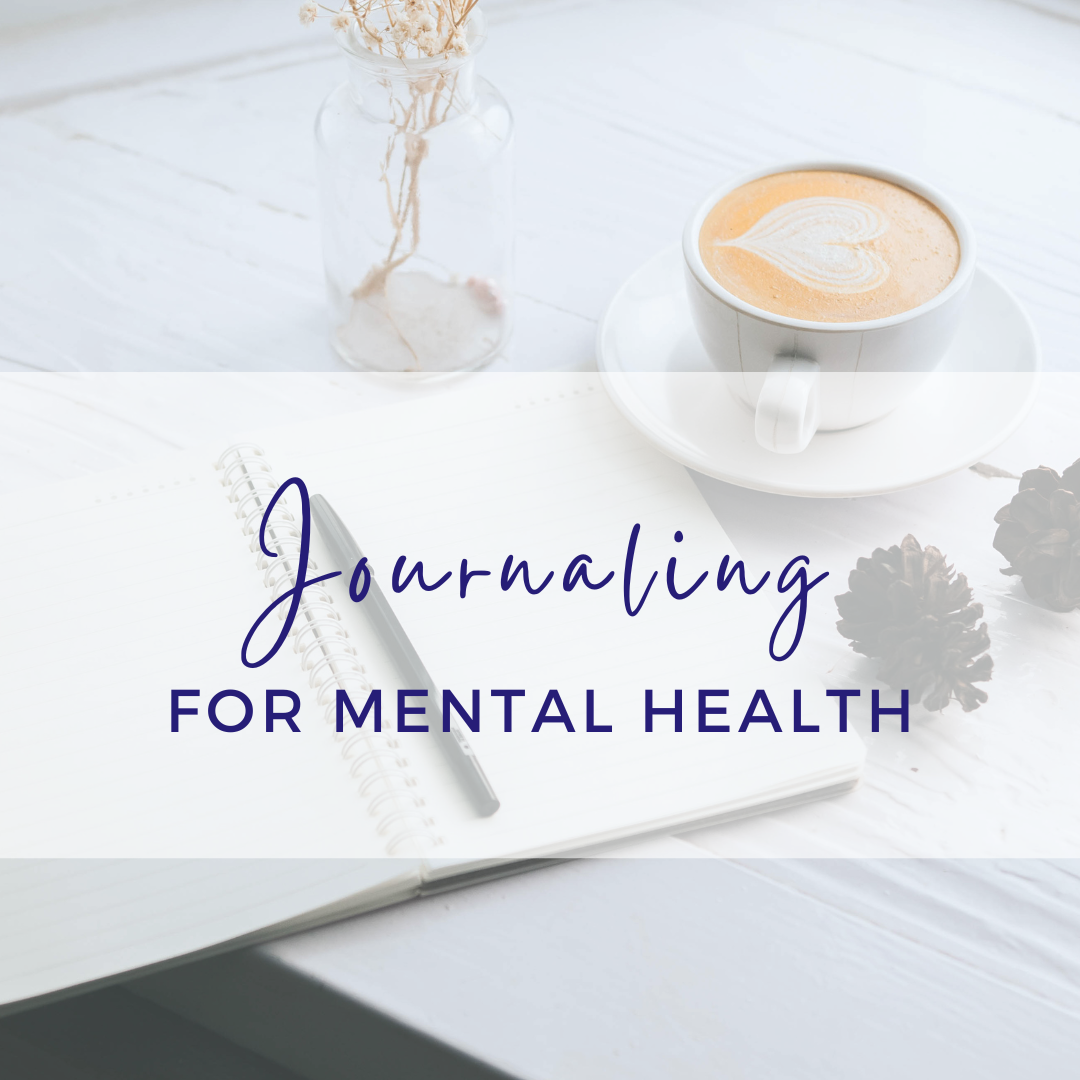Journaling is a powerful tool for improving mental health and well-being. It allows us to express our thoughts and feelings, reflect on our experiences, and gain insights into our inner world. In this blog post, we will explore the benefits of journaling for mental health and provide some tips for starting your own journaling practice.

BENEFITS OF JOURNALING FOR MENTAL HEALTH:
1. Reducing stress and anxiety: Journaling can help us manage stress and anxiety by allowing us to explore and process our emotions. Writing down our worries and fears can help us gain a better perspective and reduce their power over us.
2. Boosting mood and positivity: Writing about positive experiences, gratitude, and accomplishments can boost our mood and increase feelings of happiness and well-being.
3. Improving self-awareness: Journaling can help us become more self-aware by allowing us to reflect on our thoughts, emotions, and behaviors. This increased self-awareness can lead to greater self-understanding and personal growth.
4. Enhancing creativity: Journaling can also be a great way to tap into our creativity and imagination. Writing prompts or free writing can help us generate new ideas and perspectives.
5. Strengthening relationships: Journaling can help us process our thoughts and emotions related to our relationships, which can lead to greater understanding and communication with our loved ones.
TIPS FOR STARTING A JOURNALING PRACTICE:
1. Choose a journal that suits you: Consider the size, format, and style of the journal you prefer. Some people prefer a small, portable notebook, while others prefer a larger, more decorative journal.
2. Set aside time for journaling: Choose a time of day that works best for you, whether it's in the morning, before bed, or during a break in your day.
3. Write freely: Don't worry about grammar, spelling, or punctuation. Simply let your thoughts and emotions flow onto the page.
4. Use prompts: If you're not sure what to write about, try using prompts to spark your creativity. There are many resources available online or in books for journaling prompts.
5. Be consistent: Try to journal regularly, whether it's every day or a few times a week. Consistency is key to establishing a journaling practice and reaping the benefits.
Journaling can be a powerful tool for improving mental health and well-being. By allowing us to explore and process our emotions, reflect on our experiences, and gain insights into our inner world, journaling can help us manage stress and anxiety, boost our mood and positivity, improve self-awareness, enhance creativity, and strengthen relationships. With a little time and effort, anyone can start a journaling practice and begin reaping the benefits.
Please don’t get stuck in your journal by overthinking or letting it cause you to spiral down. You control the narrative.



Comments ()